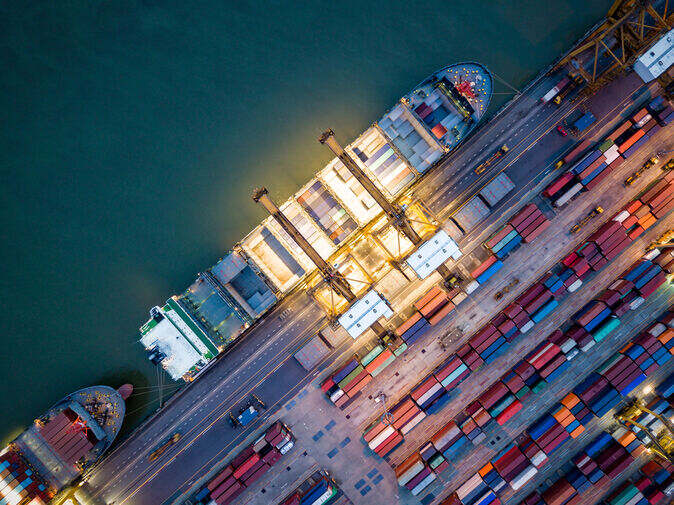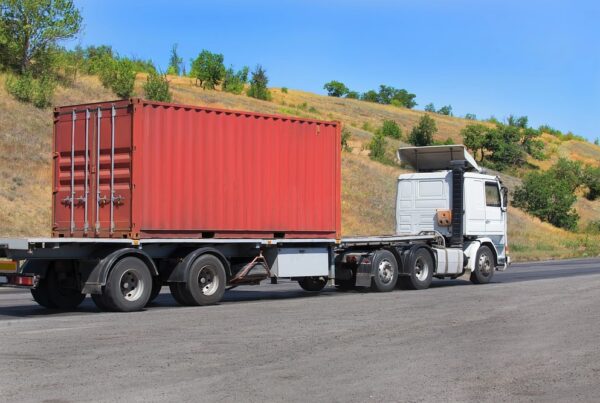Why Container Charges Matter in Shipping
When it comes to freight shipping, costs don’t stop at pickup and delivery. Container charges—fees associated with the use, handling, and timing of shipping containers—are a big part of the overall logistics picture. Whether you’re moving goods across the country or across the globe, these charges can add up fast.
For businesses in the shipping industry, overlooking these extra costs can mean unexpected shipping expenses, higher freight rates, and delays in a cargo’s journey. Understanding what container charges are, how they work, and who they impact is key to better planning, fewer surprises, and more control over your supply chain.

What Are Container Charges?
Understanding the different types of container charges starts with two of the most misunderstood terms in the shipping industry: demurrage fees and detention fees.
-
Demurrage fees are charged by the shipping line when a full container sits at the port beyond the free time. This happens when the cargo isn’t picked up by the consignee within the agreed number of days, also known as the free day period.
-
Detention fees apply when the container has been moved off the terminal (to a warehouse, for example) but not returned within the agreed timeframe. You’re holding up equipment the carrier needs for other shipments.
These are often referred to as demurrage and detention charges and are assessed by shipping lines and carriers to keep containers moving through the system.
To avoid demurrage charges or detention charges, you need to understand:
-
Free time: The number of days you have to pick up, unload, and return the container without incurring fees.
-
Free day: The final day of your free time period.
-
Last free day: The very last day before fees start to accumulate.
Example: If your container arrives on a Monday and you have 5 days of free time, your last free day is Friday. Any delay past that—whether at the port or offsite—could result in demurrage or detention fees depending on where the container is.

Who Is Impacted?
Container charges don’t just impact one party—they impact the entire shipping and logistics chain. Shippers, freight forwarders, brokers, and customers are often the ones paying the fees, but many other players are involved in the process. At the operational level, trucking companies, ports, and vessel operators all interact with the equipment, timelines, and infrastructure that impact how long a container is in use. If a truck is delayed at a congested port or if a vessel arrives behind schedule, that can trigger a chain reaction that leads to demurrage or detention fees regardless of fault.
The risk of extra fees can also increase based on cargo type and shipment destination. Time-sensitive goods like perishable items may require faster turnaround to avoid spoilage, while certain international destinations may have longer customs processes or limited infrastructure, increasing the chances of delay.
Understanding who is responsible for what part of the shipment is key to assigning accountability and minimizing extra fees throughout the journey.
How Demurrage and Detention Fees Are Charged
Container charges don’t just impact one party—they impact the entire shipping and logistics chain. Shippers, freight forwarders, brokers, and customers are often the ones paying the fees, but many other players are involved in the process.
At the operational level, trucking companies, ports, and vessel operators all interact with the equipment, timelines, and infrastructure that impact how long a container is in use. If a truck is delayed at a congested port or if a vessel arrives behind schedule, that can trigger a chain reaction that leads to demurrage or detention fees regardless of fault.
The risk of extra fees can also increase based on cargo type and shipment destination. Time-sensitive goods like perishable items may require faster turnaround to avoid spoilage, while certain international destinations may have longer customs processes or limited infrastructure, increasing the chances of delay.
Understanding who is responsible for what part of the shipment is key to assigning accountability and minimizing extra fees throughout the journey.

Impact on Freight Rates
Demurrage and detention fees may seem like line-item costs, but they can have a big impact on the overall shipping process and the financials of a load. These extra fees contribute directly to rising shipping costs, especially when delays occur at ports, during unloading, or in returning equipment.
When these delays happen, brokers and carriers often adjust their trucking freight quotes to account for the risk. That leads to fluctuations in freight rates and can even drive up spot rates, especially in high-demand lanes or when capacity is tight. For shippers, these charges can eat into profit margins. A single delay can result in hundreds or thousands of dollars in extra costs, especially if multiple containers are involved. And because delays and port congestion are often outside of the shipper’s control, these costs can be frustrating and unpredictable.
Managing and anticipating demurrage and detention fees is no longer optional—it’s a key part of keeping total shipping costs in check and protecting your bottom line.
How to Avoid or Reduce Container Charges
-
Proactive planning: Avoiding container charges starts with control, and that begins with early planning. Pre-clear customs and have all documents ready before your shipment arrives. This minimizes delays and keeps you within your free day window.
-
Leverage visibility technology: Real-time container tracking lets you see every step of the shipping process. Visibility tools can alert you to cutoff times and key milestones so you can act before fees are triggered.
-
Coordinate with your freight forwarder and broker: Tight communication helps to streamline inland transportation plans, reduce dwell times, and keep your containers moving on schedule.
-
Encourage full container returns and timely cargo movement: When full containers are returned promptly and cargo movement is steady, equipment stays in circulation and demurrage and detention risks are reduced.
Managing These Charges
Working with a leading logistics provider can make a big difference in how you handle and reduce container charges. A strong logistics partner doesn’t just arrange freight; they help you stay compliant, avoid delays, and mitigate demurrage fees before they add up.
By partnering with a provider that has relationships with major shipping lines, you gain faster booking, priority equipment, and more flexible scheduling. These benefits help to optimize your logistics operations, especially when time is tight or capacity is limited.
In addition, your partner should offer container tracking tools and support services that let you monitor each shipment in real time. From flagging potential delays to assisting with dispute resolution, these services are key to staying ahead of fees and keeping shipments on track.

Container Charge Costs
Understanding container charges is more than just knowing what they are—it’s about knowing how they vary based on your cargo, the specifics of your shipment, and your access to busy ports. These fees can add up quickly if not managed correctly and impact both your timelines and your budget. So plan smart. With planning, the right tech, and the right logistics partner, you can stay ahead of delays, avoid penalties, and keep your operation running.
Ready to ship without surprises? Work with a team that knows the entire shipping process from container booking to final delivery. At every step, there’s a smarter way to move freight, and it starts with visibility, strategy, and support.




